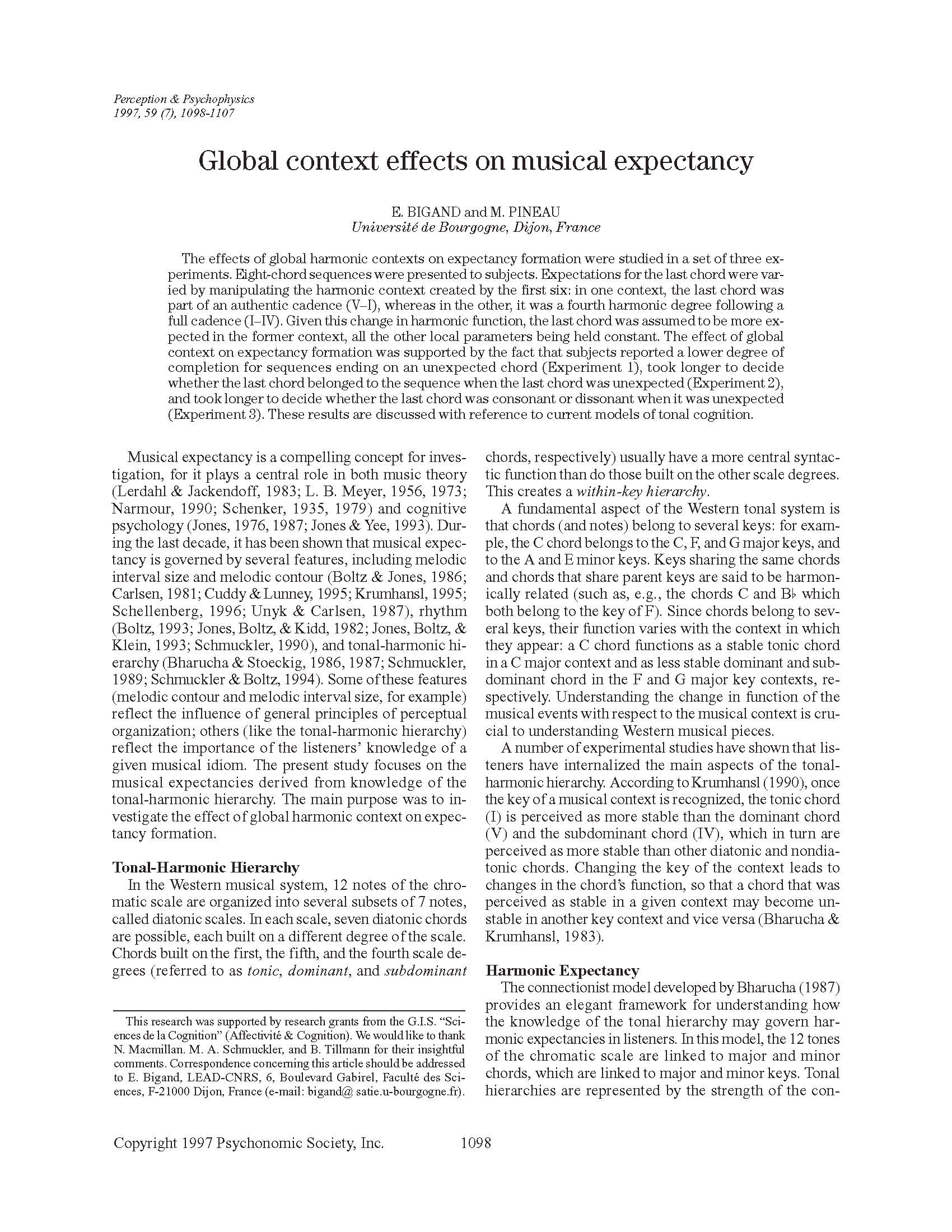The effects of global harmonic contexts on expectancy formation were studied in a set of three experiments. Eight-chord sequences were presented to subjects. Expectations for the last chord were varied by manipulating the harmonic context created by the first six: in one context, the last chord was part of an authentic cadence (V-I), whereas in the other, it was a fourth harmonic degree following a full cadence (I-IV). Given this change in harmonic function, the last chord was assumed to be more expected in the former context, all the other local parameters being held constant. The effect of global context on expectancy formation was supported by the fact that subjects reported a lower degree of completion for sequences ending on an unexpected chord (Experiment 1), took longer to decide whether the last chord belonged to the sequence when the last chord was unexpected (Experiment 2), and took longer to decide whether the last chord was consonant or dissonant when it was unexpected (Experiment 3). These results are discussed with reference to current models of tonal cognition.
Global context effects on musical expectancy
